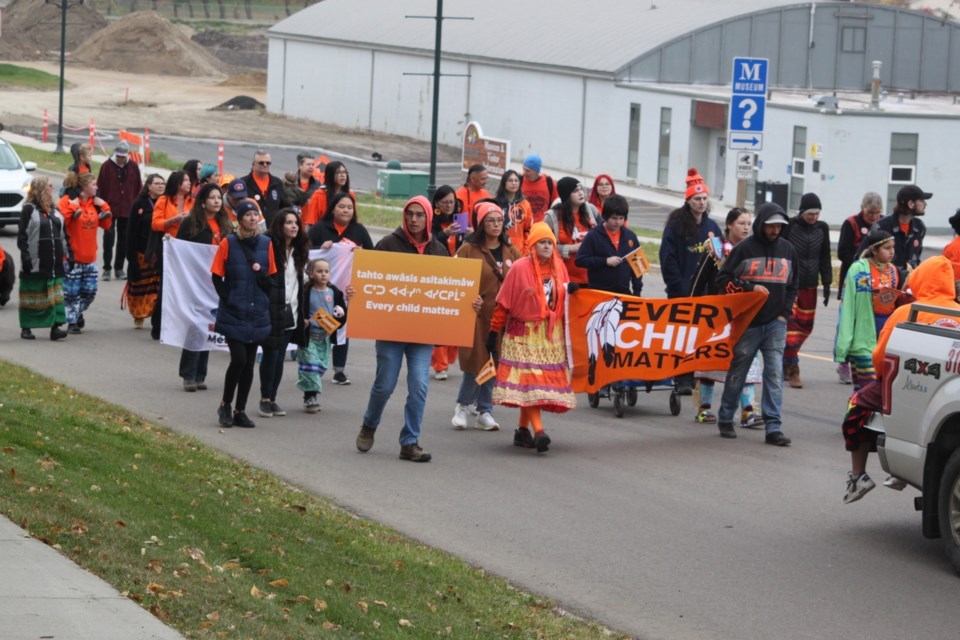LAC LA BICHE - On Sept. 30, the community of Lac La Biche will once again come together for an annual event to mark National Day for Truth and Reconciliation.
Last year, a large crowd took part in a walk to bring awareness to the trauma faced by residential school survivors, along with an event being held at the Bold Center.
National Day for Truth and Reconciliation coincides with Orange Shirt Day - a national movement to recognize the experiences of survivors of Indian residential schools and to honour them. During the 2023 event, many of those in attendance wore orange T-shirts, which have become a symbol of Indigenous resilience. Wearing orange has become a way to raise awareness about the generational impacts of residential schools.
Chenee Miller, the special events coordinator with Lac La Biche County, said last year’s event was well-attended.
“Last year we had about 180 people come out,” she said.
This year, there will be a walk hosted by Buffalo Lake Métis Settlement. The walk, she explained, gets underway at 11 a.m. at the Parkland II Motel and makes its way down Main Street, finishing at McArthur Place.
Those who attend will witness a flag raising ceremony, which is followed by a community lunch. The event will conclude with a performance by Indigenous artist Jessa Sky.
“Jessa, accompanied by her band, will walk us along her journey of reconciliation and hope through her artistry,” said Miller.
Miller explained that Lac La Biche County is collaborating with Buffalo Lake Métis Settlement, along with the Canada Native Friendship Centre in Lac La Biche for this year’s Truth and Reconciliation ceremonies. She added that dignitaries and community members from Lac La Biche County, surrounding Métis settlements and First Nations communities have all taken part in planning the event.
Miller acknowledged that National Day or Truth and Reconciliation is an important day for healing and recognition, as well as an opportunity to take action to create a better tomorrow.
“Slowly but surely by hosting this event we are bringing more awareness to the trauma of residential schools - and offering education and healing opportunities for our community members,” said Miller.


